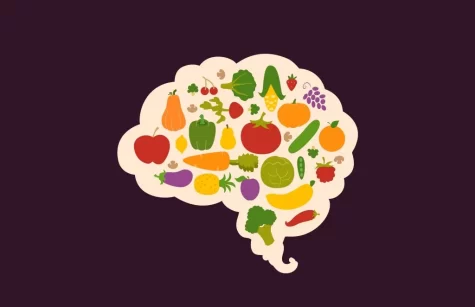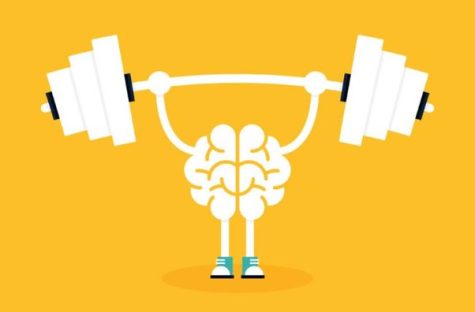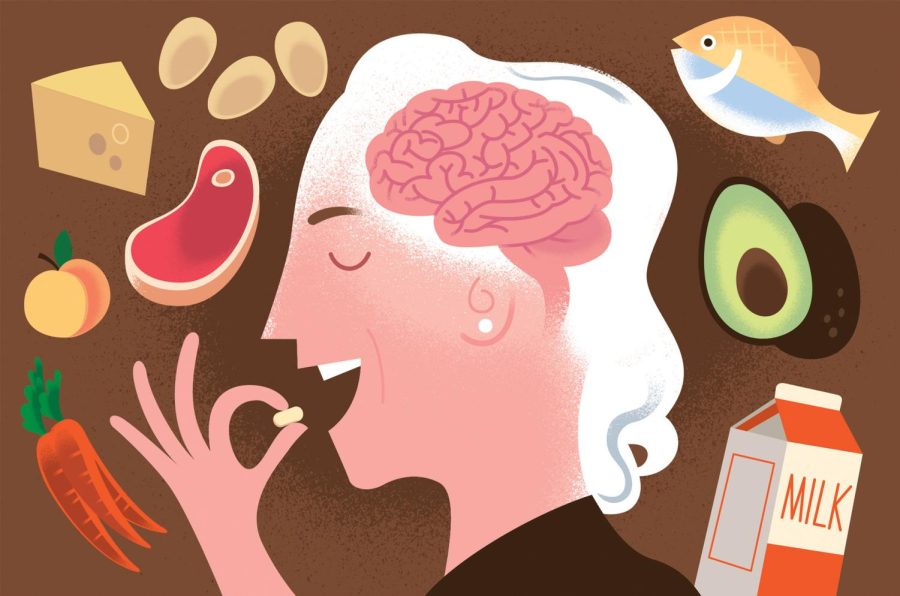Vitamins for the Brain
March 18, 2023
Have you ever wandered around the pharmacy or seen on the TV advertisements or ranges of vitamins that claim to support brain health, fight crippling diseases, or improve moods? For the average, it seems too good to be true for the most part. Due to massive social media influences and brand deals, various brands grew in popularity, such as Olly bloomed. However, did you ever stop and think if the claims were actually valid?
Well, let’s see the brain on vitamins.
The Misconceptions
Generally speaking, consumers believe that they can replace wholehearted and nutritious meals in replacement of supplements. Supplements can vary from protein, or nutrition shakes to a range of pills. But, they are additions to your diet, not replacements. Research conducted by Harvard stated, “[there’s] strong evidence that certain diets can help improve cognitive function.” Regardless, it’s essential to fuel your body with whole foods. Maintaining a balanced diet full of vitamins and minerals provides more benefits than just consuming supplements. Yet, if you are deficient in some areas, taking additional vitamins wouldn’t hurt.
In this article, we’ll take a closer look at a small mix of vitamins and nutrients that’ll help with your brain.
Also, this article was published by a Chatfield Senior High student, not a medical professional. For any personal dietary precautions, please consult with your doctor.

Vitamins
For your body, some essential vitamins would be Vitamin B, Omega-3 fatty acids, and Vitamin D. Obviously, all vitamins and minerals benefit your body. Still, these three main vitamins are proven to help with cognitive function.
There are multiple subtypes of vitamin B. They all fall under the same category, whether it be vitamin B2 or vitamin B12. So, we’ll break them down:
- Vitamin B1 (thiamin): helps with the essential function and metabolism of nutrients.
- Vitamin B2 (riboflavin): acts as a helper with enzymes within our body, grows cells, produces energy, and breaks down fats.
- Vitamin B3 (niacin): works with enzymes to convert energy for our organ systems and help reduce inflammation.
- Vitamin B5 (pantothenic acid): helps make coenzyme, which breaks down fatty acids
- Vitamin B6 (pyridoxine): helps with disease prevention and supports immune function and brain health.
- Vitamin B7 (biotin): regulars cell signals
- Vitamin B 9 (folate): supports brain function and encourages detoxification.
- Vitamin B12 (cobalamin): helps form red blood cells and DNA with the function of the nervous system.
Some vitamin B-rich foods include eggs, yogurt, legumes, salmon, sunflower seeds, and leafy greens.
Oddly enough, our bodies don’t produce Omega-3s, unlike other minerals and vitamins. We have to consume them through our diet; luckily, Omega-3 Fatty acid tablets are in almost every over-the-counter pharmacy. Generally, they are vital to our health as they improve brain function, memory, and reaction times and reduce the risk of Alzheimer’s disease.
Some plentiful foods would include fish, flaxseed, soybeans, and nuts.
You’ve heard of vitamin D being advertised everywhere, such as in your grocery store milk to millions of TV advertisements. It’s typically famous for supporting strong bones, but the vitamin is also linked to other helpful functions.
Generally, it’s well known that having a good vitamin D in your body prevents various mental health conditions like depression, Alzheimer’s disease, schizophrenia, and dementia. However, a large part of the population suffers from vitamin D deficiency. In part, our body produces vitamin D via sunlight; however, exposure and skin type vary by person. Therefore, millions of people lack vitamins.
Nonetheless, it’s available in foods such as egg yolks, milk, cereal, and certain fish such as salmon or tuna.
The Conclusion
Conclusively, research reveals that including whole grain and nutritious meals are more beneficial than consuming daily supplements. Over-the-counter vitamins and minerals should only be consumed when a person is deficient in a specific area due to external factors such as genetics or environment. Also, discussing dietary plans with your primary care provider before consuming anything is crucial.
The upcoming SAT and AP testing season may feel overwhelming and challenging to balance nutrition. Hence, maybe start looking into vitamins and supplements that’ll help your cognitive function and overall health. Still, taking additional supplements doesn’t hurt as long as it’s within a healthy dosing range (this varies depending on the person).
And remember to always consult with your doctor, as this article is not a document for medical advice.







